It was only a couple of days ago that the comics industry was rocked by news of an expansive deal between writer Scott Snyder and comiXology for a slate of new titles. Barely had the waters calmed when a new bombshell rocked the industry: media startup Substack is funding comics creators to make new comics without any ownership strings attached. And once again, Snyder is front and center, with news that he will be launching an online comics writing course via the platform. All the details are here, but in my honest opinion, $75 (or $7 a month) for an online writing class with someone of Snyder’s experience is a pretty good value proposition. And a lot of people seem to feel the same way.
Snyder and I had been emailing about having a more substantive talk recently and this seemed like the right time for a quick chat to discuss what he’s doing on Substack — and the issues with the platform — and the wider questions of how to forge a career in comics that pays a living wage — something that doesn’t often happen.
Ultimately, there’s a lot of change in the industry right now, and Snyder and his colleagues on Substack like James Tynion IV and Jonathan Hickman have done a lot of thinking about it. Hopefully their opportunities can lead to some of the benefits for all creators that they’re hoping for.
HEIDI MACDONALD: I read that Jonathan Hickman mentioned that after the Diamond shutdown happened, he did some thinking. I think people in comics kind of had a double whammy. Number one, we had the pandemic, obviously, which changed everything in our lives. And then comics had this really specific disruption that, as I said when it was happening, it’s like, you could still buy almost everything, but not periodical comics. Did you do also some soul searching during that time?
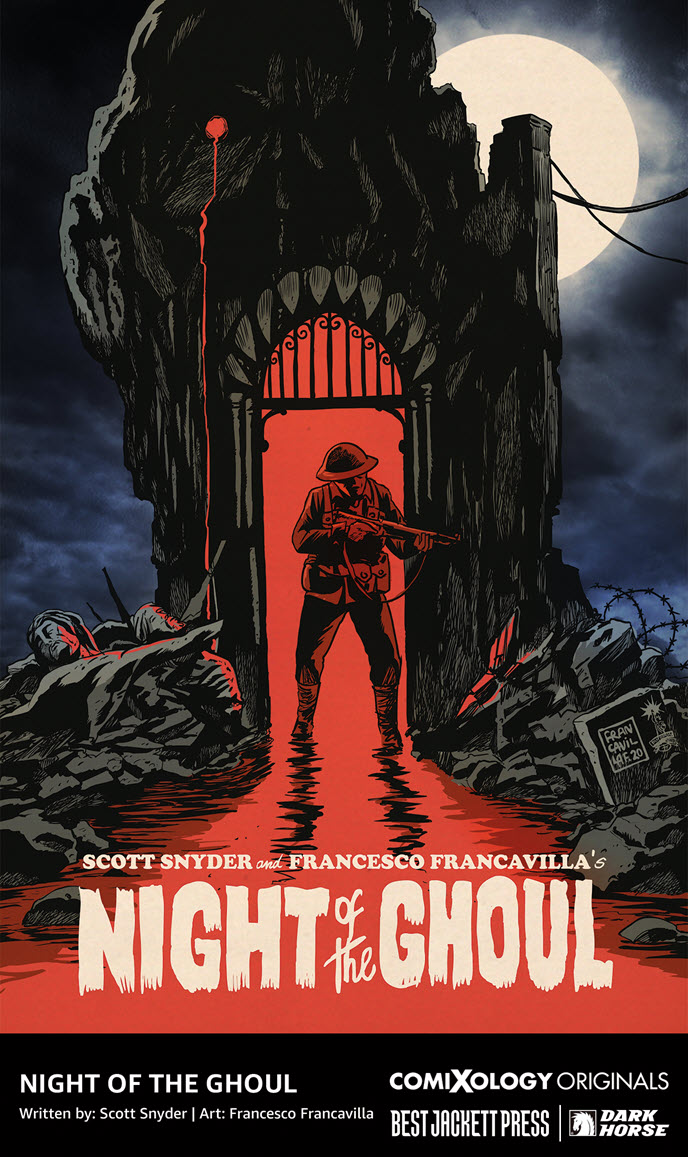
SCOTT SNYDER: All of this comes from that in a way but honestly, after being in DC, for as long as I was, I had planned on leaving that year with the end of Death Metal. I had begun to set up all of these books that I was really excited about. I was just making them in the dark with my co-creators, there was no assigned publisher yet. I was starting to have conversations with different people. But ultimately, we were making them for ourselves. Some of them had been in the works for a couple years, like the book with Francesco [Francavilla], which we had been tweeting about. Some had started even further back — the one with Francis [Manapul], we had been talking about for three years and started doing it and squirreling it away while we were doing Justice League.
But the problem doing creator-owned, whether you’re doing it with a publisher or you’re doing it yourself, is usually that you’re making it to get paid on the back end. Some publishers give you a page rate, but most of the publishers that offer page rates also take some of the ancillary rights. Not to get too in the weeds, but for people that want to own their own work and own it together with their friends and co-creators, there are a tremendous amount of choices. When the pandemic happened, and Diamond shut down and all the publishers shut down, it really made me think, and made me terrified for the industry. And there were a lot of bigger problems than mine. But my biggest concern in my little world was my co-creators, and the idea that I wasn’t going to be able to pay them. If I didn’t have money coming in, I wasn’t going to be able to assure them that these books would come out anywhere.
I had two options. One was to really double down on DC and try and take on more work, to be able to kind of trickle out money to co-creators and limit the amount of books I wanted to do and do them in a more measured way. Going to Marvel was something I thought about as well. Or [I could] just take some risks and say, ‘what if I tried some things that I believe in,’ trying to show the way in which digital and print don’t need to be competitive, sign up with comiXology, hear out some of the stuff that Nick [Spencer] had been talking about with Substack to see if I could figure out a platform for teaching — all of it.
For me, it was about creating three legs of a stool, I didn’t want to do one without the other. One was creating books with creators that I’m really excited about. One was teaching, I felt like that was something I missed tremendously. And the third was trying to find a way through Best Jackett [Snyder’s creative studio for his endeavors] to help realize the work of other creators and emergent voices in the industry. The idea was to find the funding, or find a way of monetizing different areas of my output, that would be secure from the volatility of the market. I could still make books that would feed the direct market in a big way. I could still have a big footprint in the direct market through Image and through DC or Marvel if I do work-for-hire in the next couple of years. But I’d also have a way of funding through teaching and through digital the other leg that I’m really excited about, which is helping produce work by emerging writers and artists. I could either kind of retreat a bit, or I could go big and say ‘I’m just going to try all of it and see if it works.’ And nobody knows – it’s all uncharted territory.
In terms of Substack, what’s interesting about it is that they’re giving creators grants to do whatever they want on their Substack without any real claim on their rights. So it’s almost so generous a deal that, everybody involved –- and just so you know, there are a lot of people involved. This isn’t like one wave of six creators. You’re talking about a real seismic thing, where you’re going to see very soon, creators rolling out these announcements every single week going forward.
MACDONALD: I guess my question is just that we obviously live in a world where all the tech giants are controlling it to a big degree and sometimes, I might hear some rumor like, back in the day MySpace was gonna do comics, remember that?
SNYDER: Right. Or Instagram.
MACDONALD: Right. So there’s been always these rumors or dreams, Apple’s gonna buy Madefire. Comics being the low income field that it is, we always have this kind of pipe dream of, yeah, they’re just gonna give us all this money to do it. And that never happened, because at some point, they think about printing the comics, getting them in stores, and so on. How do you make a small fortune in comics? Start with a large fortune. So I guess what I’m saying is, why do you think now, in this moment, Substack, which is emerging technology, with all the VC money, why do you think they’re like, oh, yeah, throwing all this money at comics is a great idea.
SNYDER: I think because it’s part of a larger initiative on their part to become a bigger player across the board and in social media. I think they want a more connected relationship between the people that are on their platform and fans. I think all of us would agree that Twitter is a very difficult place to have substantive conversations about comics, or for creators to connect with fans in a genuine way. And I’ve seen people migrate to a newsletter format, or to a YouTube format, whatever it is that they can have a more comprehensive messaging system and relationship with their fan base.
What I think Substack is after is for creators to migrate to that platform and say, this is where we’re going to make stuff for ourselves, to sell to retailers, to sell to fans, so that we can monetize our own social media to be able to create an infrastructure that’s like a business. So the goal would be, let’s say I’m a smaller creator, I come over and I say, I’m going to publish my comic at Image, but I have the ancillary rights, because Image grants you that, and I’m going to sell my T-shirts and my pins for subscribers. Also, for people that want a variant cover, I’m making one myself that will be available through this site. This might be granular for people that are reading this, but that’s a huge part of it. So now creators can have more control over parts of the income from that book. If you have let’s say 500 subscribers at $7 a month, literally, that’s part of your living right there. What that allows you to do is continue to make books fairly with other creators and put them out at whatever publishing house you want.
We’ve tried to make it clear to people over the years that we care about the direct market, and we care about comics as a whole. Neither of us, James [Tynion IV] or I, would be doing things that we thought would either hurt retailers or hurt the industry in some way. James and I have been friends for 15 years since he was in college and I was his adjunct professor. He’s so excited about this, because he really feels that it’s going to give creators more control of their own careers and be able to help with retail in a different way. Because you can make the books, make sure they’re great and then publish them with whatever publisher fits your sensibility for that book. I have books that I’m doing with publishers who do take some of the ancillary rights that haven’t been announced yet, because it makes more sense for me to have a page rate for my co-creator and myself on that, and that’s what my co-creator wants. Then I have books at Image that I’m paying for myself, and we pay off the back end and keep the ancillary rights.
But the thing for people to understand is that what Substack is doing is essentially giving us an injection of capital, to be able to make the things we care about. Ultimately we can make more stuff and take more control of our careers so that we’re not always beholden to big companies. As for trying to figure out what’s in it for Substack, I think a lot of us that are involved, we’re kind of like, this is too good a deal. What’s in it for Substack? Publishing the comics, but what’s in it for them is the migration of, I think, vocal and substantive players all across the landscape, from creators, to fans, to critics, to a platform that allows for greater conversation. I think that’s what they’re after.
To be clear, Substack takes nothing. So if I made a book, I could give glimpses of it or the digital version to my subscribers. And then I would have the rights to the print the book with my co-creator. And we could go to Image or Vault or Boom, or we could publish it ourselves via Crowdfunding. That’s the idea. So figuring out Substack’s game is, to me, there’s no way to do it. Because it really is an extremely generous deal. The first year they take the majority of what money you pull in to recoup the grant that they give you. But after that, they take a very small percentage no matter what you paid back.
MACDONALD: That said, Substack is a very controversial platform, because they do also host a lot of people who are very transphobic and have other bigoted opinions. People on Twitter are already saying they can’t support it.
SNYDER: We had many conversations about it, and ultimately, I think we felt comfortable with it because we’re trying to make something better. What we’re trying to do is build a place over here where we can have substantive conversations, where we can fund new creators, where we can do this in a way that we believe in. Yes, there are problems on the platform and we’ve talked about them with Nick and other people. And there’s certainly things that I hope they’ll address, but ultimately, where do you go to make something? Twitter? Where can you do some good and connect with fans and connect with and fund other creators and make things with other creators the way James and Hickman are doing. I understand the criticism, and it’s valid criticism and I will listen to it. Still, at this point I believe in what I’m building over here and what the money is going towards in that regard. So I totally get it. I understand the criticism, and I agree with it, there’s no excuse for hosting really bad players. But that said, for us, it really was a decision where we thought we could do more good than harm being over here.
MACDONALD: Let’s talk about what you’re doing specifically on Substack right now, which is teaching. I don’t think I’ve ever had a conversation with you where you didn’t talk about how much you love teaching and how you wanted to try and find a way get back to it. DC had their program, which obviously has some issues with their current system, but can you talk about why you wanted to get back to teaching?
SNYDER: I started teaching when I was an aspiring writer, and it really, for me on a selfish level, it keeps me young, I love going out there and reminding myself and my students of what priorities I think are important for being a creator, both on the page and off. So there’s kind of a personal compass with it, that’s been a constant for me, and I’ve wanted to put it back in place for a while. And then I think, also, at this point, teaching is about inviting more people in, it’s about giving more people access. When I was young, and an aspiring comic writer, there weren’t a lot of classes and there weren’t a lot of ways to learn about it. So I felt like I was always cobbling it together from reading about screenplays, or fiction, or taking classes at Gotham Writers Workshop. Eventually having been in the industry a while at this point, I do feel like I have a kind of interdisciplinary but pretty focused lesson plan in my head of the things that I wish somebody had shown me as I was coming in. Things I learned from starting on Detective Comics to now, from character lessons to practical lessons about pitching a comic. So I feel good about the idea of being able to go out there and make those lessons available for as affordable a price as possible to as many people as want to hear them. I’m nervous about it –- I could totally fuck it up. But I do love teaching.
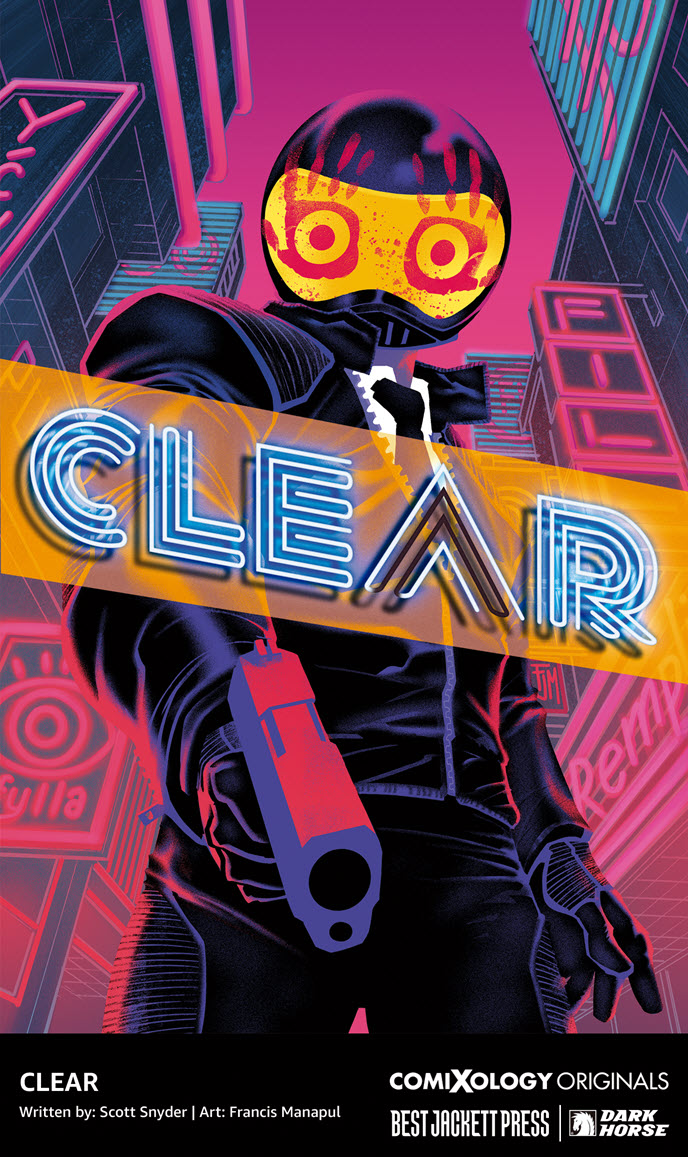
As for the problems with the DC Writers Workshop, which was the last time I really got to teach in an in depth way, everybody was really excited about it internally. It had great support from Bobbie Chase, and Sarah, and Dan [DiDio] and everybody there. The problem was that it wasn’t as applicable as I would have liked because the line was moving at such a crazy clip and there was so much change constantly in the DC roster at that time. It was very hard to find jobs for those people while I was teaching. Eventually, a lot of them found their way in — Joelle Jones, Matt Rosenberg, Vita Ayala, Phil Kennedy Johnson, and Mike Moreci — a lot of people that came through it that are now established.
MACDONALD: Right, it certainly was a success.
SNYDER: Well, it wasn’t at that time, because what I wanted was there to be an ability to really offer people work on the other side. And, again not putting blame on any one person or anything at DC, it was just a disconnect between the utility of the class and the sort of idealism of it. And I think the reason I like this format [on Substack] is that I’m trying to give people the ability to take these lessons, make your comic, in an environment right now, where it feels even different than five, six years ago, where there’s a lot more access to being able to publish yourself, put your comic online, be able to realize what it is you want to make. So this way, there’s no pressure. It’s more like, here’s everything I’ve learned, you don’t have to pay a lot of money, there’s no exclusivity, and go make some great comics.
MACDONALD: It’s actually really interesting about how there’s so many more options. And I just think like in the olden days, it really was your goal is to write Spider-Man or Batman. And that was it, that was the pinnacle. And now I think aspiring writers just have very different goals. Is that what you’ve found?
SNYDER: I came in writing indie stuff, and that was always going to be a pillar. Throughout my career, it was important to me to carve out a space to always be doing creator owned. But I’m still in that generation of ‘I can‘t believe I’m writing Batman.’ It was my dream come true. My Olympics, my World Series Game 7. But I do see a change. I think there’s a tremendous desire and enthusiasm on the part of incoming creators to write characters that they’ve always loved. But I think the priorities are shifting, because there’s so much demand. People consume entertainment in a different way than they used to. Before, they only needed X amount of good shows on TV. It was Thursday night, eight o’clock, and during the day, there was kind of garbage programming half the time. But now because of streaming, you demand good stuff constantly, and it creates this huge need for IP. So you see a lot more things getting optioned, including from creator-owned comics. I think there’s a bigger sense among creators coming in about the potential and the excitement around making things of your own that will stick. And there’s more opportunity as well.
MACDONALD: How do you think the Big Two are able to react to this reality?
SNYDER: I don’t know. I’m really good friends with Marie [Javins, DC’s editor in chief]. I love the people there, there’s incredible editorial staff there and incredible creators there. But I’ve kind of worried and thought about that so much over the last 10 years. How do we bring more people in for Death Metal or DC this or that. I have to take a break for a little bit so that if and when I go back to that I can fully think about that ecosystem. And that’s kind of the problem. I can’t speak for Marvel, I’m assuming it’s the same and I really like everybody there. But I know that DC is in great hands right now with Marie and with the staff that she has under her and people that love and care about comics, and are excited about a lot of these same opportunities, even when there are challenges. So I think they’ll adapt in a way that benefits them.
I just feel that for a long time comics has not worked as well as it can in terms of a kind of mutually beneficial ecosystem, where digital isn’t forced to be competitive with print, but can actually be more of a subscription service where you can try the book, see the books, get excited, and then go to your store, buy the books in a different format, different content. My hope is that a lot of this stuff is corrective. That’s why I like being at comiXology, pushing people to get a subscription. They’ll get all my stuff for $4.99 a month. That doesn’t benefit me – it would benefit me more to buy every single issue because we pay back our advances faster. But my belief is go get subscriptions, because that will allow you to browse all these amazing new creators that they’ve supported, Mark Bernadin and Ariela Konstantina on Adora, Chip Zdarsky on Afterlift, and the rest. Go get excited to go to your physical comic store and talk about it and buy the books.
MACDONALD: John Jackson Miller did his little back-of-the-envelope math recently, and it looks like comics were even bigger in July 2021 after a year and a half pandemic than they were in June 2019. And we thought it was great then. So obviously, reading a lot of digital comics over the course of the pandemic has led people to go back to the stores or to go to Amazon.
SNYDER: That’s what I’m saying. I am in bed with retailers forever. I’m literally doing my class at my local store. You know, even from when I was a kid, you could get a mailed subscription [to a comic] from any publisher sent to your house. You never needed stores. But you do go to the store, because you love the shop, and you love the people. It’s like Cheers. I went [to my shop] to tell them I was having a kid, I’ve been going to my store since before I broke in, and I ran in there on the day I first got to pitch for Marvel for Human Torch, saying do you have anything on the original robot Human Torch? The store is magic in a way, it’s the lifeblood of comics, because it’s where you go to find other people like you and to find the physical thing you can take home and love. But it shouldn’t be threatened by services that allow people coming in the door to fall in love with comics. It’s the same thing with independent bookstores right now, which are growing. The goal is to create a better, more connected comic book industry.
MACDONALD: It’s true. I think the pandemic and isolation and not being able to go to do things has made us realize that human beings innately like going places and doing things.
SNYDER: And they rediscover their old hobbies and things that they love. I think comics make a lot of people happy in that way.
MACDONALD: I have one more question for you. Scott, you are a very busy man. You’re a husband and a father of three boys. And all these books. And now you’re teaching. How will you do it all?
SNYDER: James and I tease each other about how we just have to clone ourselves. But when you love what you do, your work goes fast! For people worried about how many books are coming out, they’re really staggered. Some of them are already done. And some of them are half done, and some of them don’t have to start until the winter. So there’s a very strategic schedule to all of it. Teaching is something I’ve been wanting to do it forever. So it’s been built up in my mind, I know what books I want to use, new stuff and classics. So yeah, talk to me in six months! But right now I’m fired up and excited.
Again, what I wish I could just put out to people as the thesis is that it’s changing times, none of us know exactly what the right thing to do is, we’re all figuring it out as we go along. But the people involved in both Substack and Chip [Mosher] with comiXology, the people that are part of some of these initiatives, really want comics to succeed, physical comics, digital comics, all of it. Nobody is in it for the wrong reasons, Saladin or James or me or John or Molly. None of us are there to just take the money and hurt comics. We’re there because we honestly believe that some of this stuff will hopefully lead to a better, bigger, healthier industry.
[You can subscribe to Scott Snyder’s Substack here. This interview has been edited for clarity and length.]


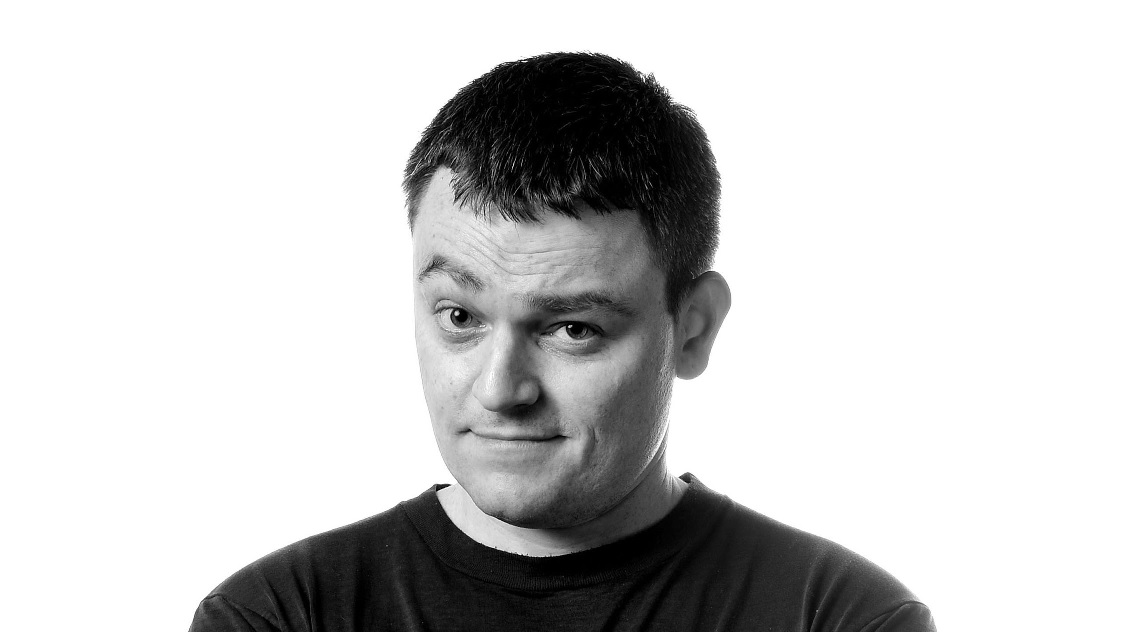

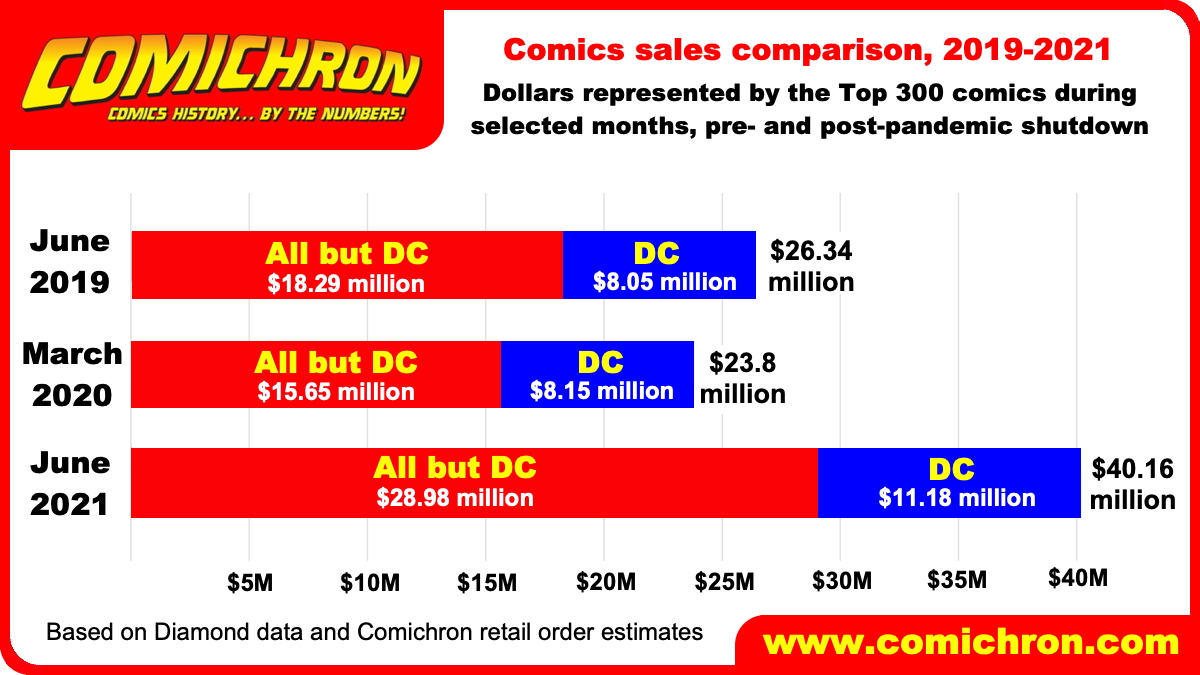
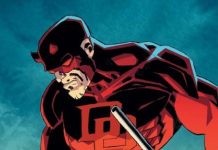
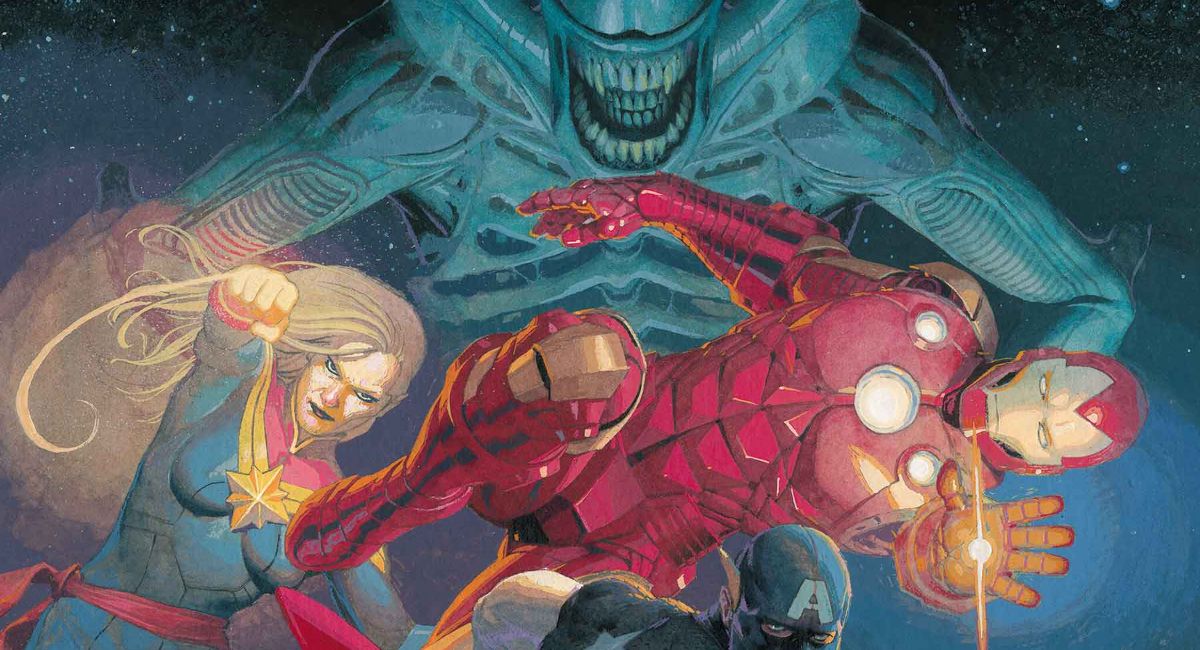
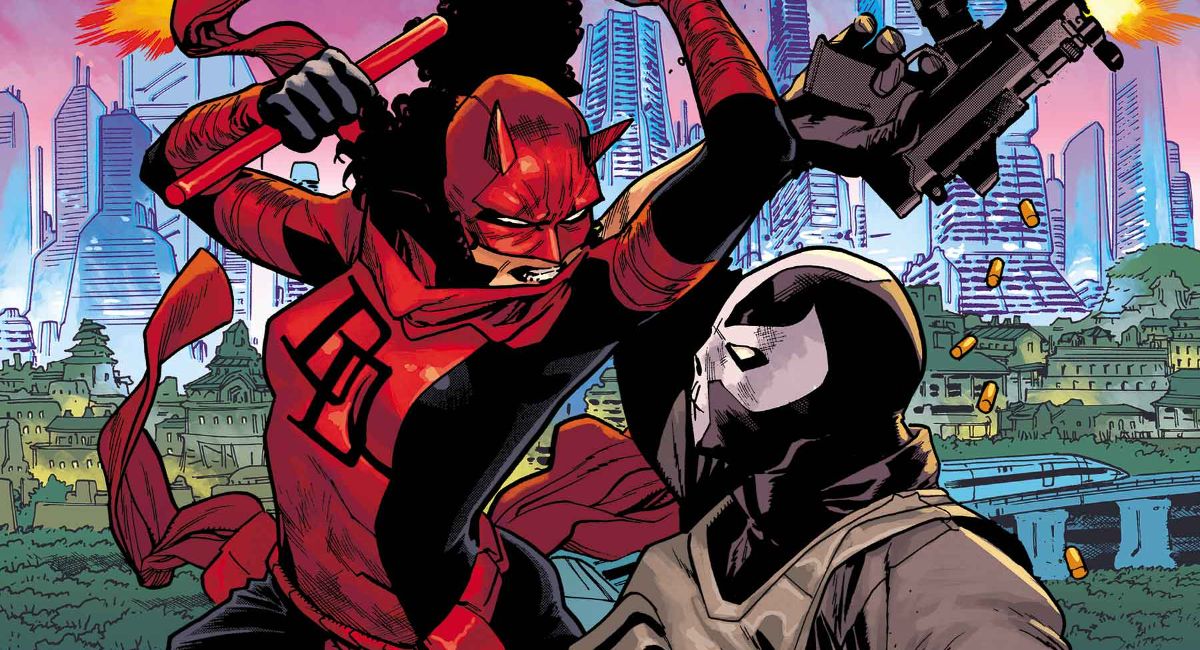
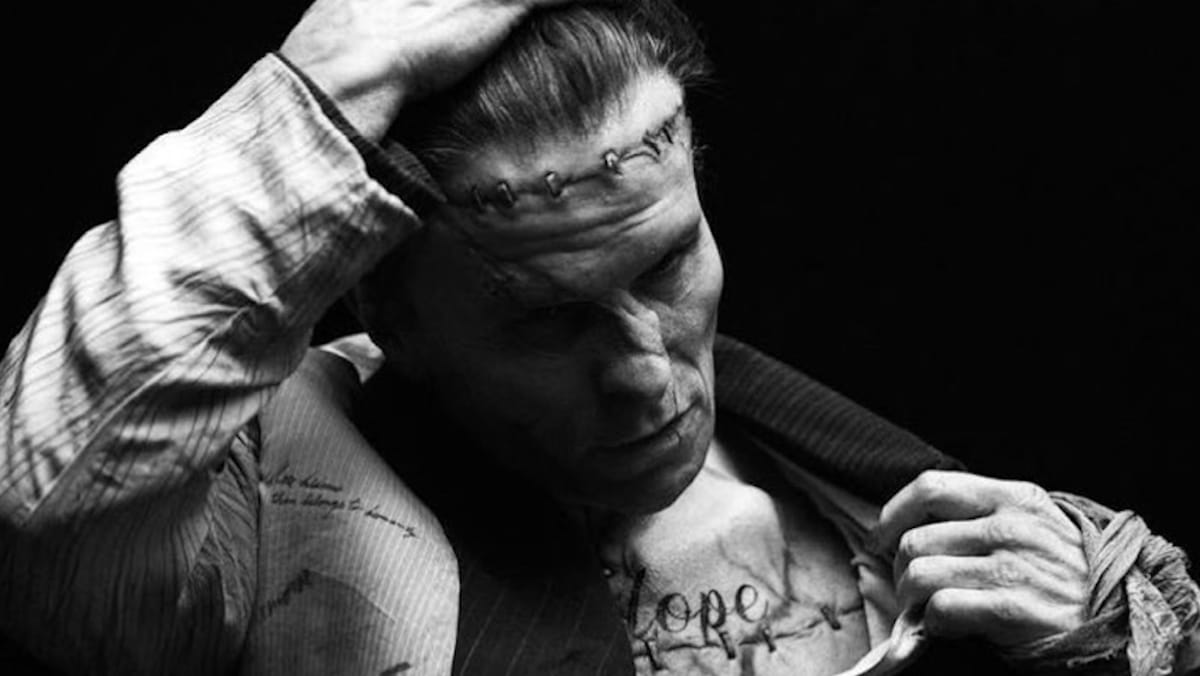


It was a good interview. Thanks, Heidi. Congratulations to the various creators who have a better platform now. In the short term, I wonder if this will hurt Image the most. It sounds like creators are struggling to make a living with their Image books, but Substack is providing money upfront. There will always be people eager to write Superman, Batman or Spider-man, but those people must realize they’ll never get rich writing work-for-hire stuff. Disney, Marvel, Warner, and DC will do whatever they can to screw creators and castmembers over royalties: Scarlet Johansson, Alan Moore, Jack Nicholson, Jack Kirby, Siegel and Shuster, Bill Finger, Steve Gerber, etc.
Sweet.
Comments are closed.